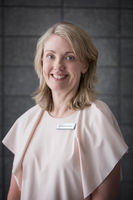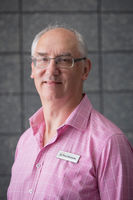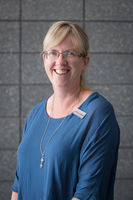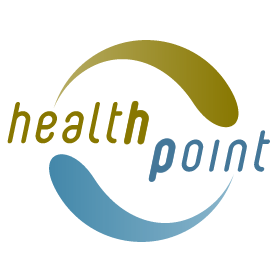West Auckland > GPs / Accident & Urgent Medical Care > ProCare >
Hobsonville Family Doctors
General Practice (GP) Service
Today
Description
About us
On the 11th April 2016, Luckens Road Medical Centre became Hobsonville Family Doctors. We are easy to find on 124 Hobsonville Road, on the first floor of the new building in front of the new Countdown.
Our purpose built clinic has 5 GP clinic rooms and a large nursing and treatment area. There is a Pharmacy, Physiotherapist and Podiatrist conveniently located in the same building. There is a big lift, mobility access and disabled parking at our front door, and plenty of free parking available outside. There is a bus stop outside which has services connecting to Hobsonville Point and West Harbour (112), Whenuapai and Herald island (114), and Greenhithe, Constellation, Westgate, Massey and Henderson (120).
Opening hours and consultations
Our opening hours effective from July 2023 are Monday and Wednesday 8am to 6pm, with Thursdays late night open until 7pm. Tuesday and Friday opening hours are 8am - 5pm. Saturday morning appointments are for urgent consultations rather than routine care, and all consultations on Saturdays will have a $20 surcharge. The Saturday opening hours are 9am to 12pm. We are not open on Sundays or public holidays.
We are a family centred surgery offering a full range of general practice services to you and your family.
Consultations are preferably by appointment, but we endeavor to fit in urgent presentations as needed. Our standard consultation time is 15 minutes. If needed, we can arrange a flexible payment scheme where you can pay a little each week to get access to healthcare when you need it.
Staff
HFD team
We have a fantastic team of 27, consisting of the Practice Manager, twelve doctors, six nurses, and eight administration/receptionists.
Doctors: Dr Paul Nicholls, Dr Torrance Merkle, Dr Gretchen Laubscher, Dr Joanne Shooter, Dr Julyan Lawry, Dr Olga Fomchenko, Dr Carolyn Bulman, Dr Alice Vermunt, Dr Brian Do, Dr Sarah McArthur, Dr Kate Richardson and Deshika Nissanka.
Practice Manager: Mandi Knowles
Nursing Staff: Rita Li (Lead Nurse) Melanie Shepherd, Alison Brady, Lynette Bode, Zyra Anana and Gabby Fitz-Gerald.
Admin/Receptionists: Shiree Richardson (Reception Manager), Amy Ong, Linda Ward, Lynne Fletcher, Liana Taylor, Sally Foot, Frances Bacher and Shaini Russell.
Doctors
-

Dr Carolyn Bulman
General Practitioner
-

Dr Sang Do
General Practitioner
-

Dr Olga Fomchenko
General Practitioner
-

Dr Gretchen Laubscher
General Practitioner - Vocationally Registered
-

Dr Julyan Lawry
General Practitioner - Vocationally Registered
-

Dr Sarah McArthur
General Practitioner
-

Dr Torrance Merkle
General Practitioner - Vocationally Registered
-

Dr Paul Nicholls
General Practitioner - Vocationally Registered
-

Dr Deshika Nissanka Arachchi Appuhamilage
General Practitioner
-

Dr Kate Richardson
General Practitioner
-

Dr Joanne Shooter
General Practitioner - Vocationally Registered
-

Dr Alice Vermunt
General Practitioner
Ages
Child / Tamariki, Youth / Rangatahi, Adult / Pakeke, Older adult / Kaumātua
How do I access this service?
Make an appointment, Enrolled patients
Enrolling new patients
No
This practice is not currently enrolling new patients.
Fees
Enrolled Patient Fees
| Age Range | Without CSC | With CSC |
|---|---|---|
| Under 6 years | Free | Free |
| 6 to 13 years | Free | Free |
| 14 to 17 years | $48.00 | $13.00 |
| 18 to 24 years | $48.00 | $19.50 |
| 25 to 44 years | $65.00 | $19.50 |
| 45 to 64 years | $65.00 | $19.50 |
| 65+ years | $58.00 | $19.50 |
The above fees come into effect from Monday 19th August 2024
ACC consultations are:
FREE for under 14's.
$50 for over 14
If you have a CSC, ACC consultations are $19.50, and if you're between 14-17 and are a dependant of someone with a CSC, ACC consultations are $13.00.
Hours
| Mon | 8:00 AM – 6:00 PM |
|---|---|
| Tue | 8:00 AM – 5:00 PM |
| Wed | 8:00 AM – 6:00 PM |
| Thu | 8:00 AM – 7:00 PM |
| Fri | 8:00 AM – 5:00 PM |
| Sat | 9:00 AM – 12:00 PM |
After Hours:
Phone our main number and you will be transferred to an after hours service who will triage you and provide the next steps
Pricing for a 10-minute GP consultation will be $49.95 for a standard 10-minute appointment, or $19.50 for Community Services Card holders appointment, when booked via the MyIndici portal.
Public Holidays: Closed Auckland Anniversary (27 Jan), Waitangi Day (6 Feb), Good Friday (18 Apr), Easter Sunday (20 Apr), Easter Monday (21 Apr), ANZAC Day (25 Apr), King's Birthday (2 Jun), Matariki (20 Jun), Labour Day (27 Oct).
Christmas: Open 23 Dec — 24 Dec. Open 24 Dec (8:00 AM – 3:00 PM). Closed 25 Dec — 29 Dec. Open 30 Dec (8:00 AM – 5:00 PM). Open 31 Dec (8:00 AM – 12:00 PM). Closed 1 Jan — 5 Jan. Open 6 Jan — 10 Jan.
Preferred urgent care clinic out of hours: White Cross Henderson - 24/7 Urgent Care.
Languages Spoken
English, Malay, Korean, Russian
Services Provided
Immunisation is the safest and most effective way to provide protection for you and your tamariki’s health. For more information view the NZ immunisation schedule. We also offer a range of travel and non-funded vaccines.
Immunisation is the safest and most effective way to provide protection for you and your tamariki’s health. For more information view the NZ immunisation schedule. We also offer a range of travel and non-funded vaccines.
- Pregnancy vaccinations
- Childhood immunisation programme
- 45 year old vaccinations
- 65 year old vaccinations
- Adult flu vaccine
- Child flu vaccine
- Human Papillomavirus (HPV) vaccine
- Diphtheria / Tetanus / Pertussis (whooping cough) vaccine
- Measles / Mumps / Rubella (MMR) vaccine
- Shingles vaccine
- Travel vaccinations
- Meningococcal vaccine
Immunisation is the safest and most effective way to provide protection for you and your tamariki’s health. For more information view the NZ immunisation schedule.
We also offer a range of travel and non-funded vaccines.
Your GP's surgery is far more than a place to go when you are feeling unwell and needing a quick cure. The doctor who sees you has gone through an extensive medical training to equip her or him to help children and adults of all ages with a range of physical and emotional difficulties. GPs are at the centre of the healthcare hub and will be aware of services and expertise that are available locally and further-a-field. GPs are also aware of the link that stress and unhappy life events have on physical health so know when to suggest a talking therapy rather than medication.
Your GP's surgery is far more than a place to go when you are feeling unwell and needing a quick cure. The doctor who sees you has gone through an extensive medical training to equip her or him to help children and adults of all ages with a range of physical and emotional difficulties. GPs are at the centre of the healthcare hub and will be aware of services and expertise that are available locally and further-a-field. GPs are also aware of the link that stress and unhappy life events have on physical health so know when to suggest a talking therapy rather than medication.
Your GP's surgery is far more than a place to go when you are feeling unwell and needing a quick cure. The doctor who sees you has gone through an extensive medical training to equip her or him to help children and adults of all ages with a range of physical and emotional difficulties. GPs are at the centre of the healthcare hub and will be aware of services and expertise that are available locally and further-a-field. GPs are also aware of the link that stress and unhappy life events have on physical health so know when to suggest a talking therapy rather than medication.
Primary care practices offer a range of services and are able to deal with most minor accident care. If they are not able to deal with an injury they will refer on to the appropriate service.
Primary care practices offer a range of services and are able to deal with most minor accident care. If they are not able to deal with an injury they will refer on to the appropriate service.
Primary care practices offer a range of services and are able to deal with most minor accident care. If they are not able to deal with an injury they will refer on to the appropriate service.
Minor surgery is commonly provided in primary care practices, providing fast, competent removal and biopsies of skin lesions. Other services include cosmetic work such as removal of benign moles and skin tags. Ingrown toenail surgery is also commonly provided. These conditions do not need to be referred to a hospital, perhaps saving you a long wait or a cancelled appointment when a more serious case takes priority.
Minor surgery is commonly provided in primary care practices, providing fast, competent removal and biopsies of skin lesions. Other services include cosmetic work such as removal of benign moles and skin tags. Ingrown toenail surgery is also commonly provided. These conditions do not need to be referred to a hospital, perhaps saving you a long wait or a cancelled appointment when a more serious case takes priority.
Minor surgery is commonly provided in primary care practices, providing fast, competent removal and biopsies of skin lesions. Other services include cosmetic work such as removal of benign moles and skin tags. Ingrown toenail surgery is also commonly provided.
These conditions do not need to be referred to a hospital, perhaps saving you a long wait or a cancelled appointment when a more serious case takes priority.
Each GP surgery or primary care practice will have its own procedure for repeat prescribing but the following rules are common to most, if not all. Patients who are well-known to the practice who have a stable condition like asthma, hypertension or diabetes could be allowed to get a repeat prescription for up to six months. Repeat prescriptions are never given to patients who are not known to the practice and there is probably a blanket ban on repeats for narcotics and other drugs that could be misused as doctors are expected to monitor these drugs carefully. We require 48 hours notice to complete repeat prescription requests. There is a small charge for this service.
Each GP surgery or primary care practice will have its own procedure for repeat prescribing but the following rules are common to most, if not all. Patients who are well-known to the practice who have a stable condition like asthma, hypertension or diabetes could be allowed to get a repeat prescription for up to six months. Repeat prescriptions are never given to patients who are not known to the practice and there is probably a blanket ban on repeats for narcotics and other drugs that could be misused as doctors are expected to monitor these drugs carefully. We require 48 hours notice to complete repeat prescription requests. There is a small charge for this service.
Each GP surgery or primary care practice will have its own procedure for repeat prescribing but the following rules are common to most, if not all. Patients who are well-known to the practice who have a stable condition like asthma, hypertension or diabetes could be allowed to get a repeat prescription for up to six months. Repeat prescriptions are never given to patients who are not known to the practice and there is probably a blanket ban on repeats for narcotics and other drugs that could be misused as doctors are expected to monitor these drugs carefully.
We require 48 hours notice to complete repeat prescription requests. There is a small charge for this service.
Sometimes your doctor needs to take a sample of blood or urine either to discover what is wrong with you or to measure something in your blood so that the right medication is given to you. These tests could be anything from blood sugar to a full blood count or a sample of tissue to test for cancer. While urine can generally be tested in the surgery, blood and other specimens are usually sent away for testing at a laboratory. Most results come back within 48 hours unless a very rare test is needed which has to go to a specialist lab further away when it might take a little longer. Ask your Dr about arrangements to obtain the result of your tests at the time they are requested.
Sometimes your doctor needs to take a sample of blood or urine either to discover what is wrong with you or to measure something in your blood so that the right medication is given to you. These tests could be anything from blood sugar to a full blood count or a sample of tissue to test for cancer. While urine can generally be tested in the surgery, blood and other specimens are usually sent away for testing at a laboratory. Most results come back within 48 hours unless a very rare test is needed which has to go to a specialist lab further away when it might take a little longer. Ask your Dr about arrangements to obtain the result of your tests at the time they are requested.
Sometimes your doctor needs to take a sample of blood or urine either to discover what is wrong with you or to measure something in your blood so that the right medication is given to you. These tests could be anything from blood sugar to a full blood count or a sample of tissue to test for cancer.
While urine can generally be tested in the surgery, blood and other specimens are usually sent away for testing at a laboratory. Most results come back within 48 hours unless a very rare test is needed which has to go to a specialist lab further away when it might take a little longer.
Ask your Dr about arrangements to obtain the result of your tests at the time they are requested.
Liquid nitrogen is a fast, effective treatment provided in many practices to treat viral warts, sun damaged skin, skin tags and many benign cosmetic lesions. It comes in a container with a nozzle and is usually applied by swab or spray. Often one treatment is all that is needed but sometimes it may need repeating after two weeks. Because it cannot be stored for too long, you will often find that your GP will treat a number of patients one after the other. For more information click here.
Liquid nitrogen is a fast, effective treatment provided in many practices to treat viral warts, sun damaged skin, skin tags and many benign cosmetic lesions. It comes in a container with a nozzle and is usually applied by swab or spray. Often one treatment is all that is needed but sometimes it may need repeating after two weeks. Because it cannot be stored for too long, you will often find that your GP will treat a number of patients one after the other. For more information click here.
Liquid nitrogen is a fast, effective treatment provided in many practices to treat viral warts, sun damaged skin, skin tags and many benign cosmetic lesions. It comes in a container with a nozzle and is usually applied by swab or spray. Often one treatment is all that is needed but sometimes it may need repeating after two weeks.
Because it cannot be stored for too long, you will often find that your GP will treat a number of patients one after the other.
For more information click here.
LARC methods are very effective at preventing unplanned pregnancy and are “fit and forget” forms of contraception – you don’t need to remember them every day or every month. LARC methods: Intrauterine Contraceptive Devices (IUCD or IUD) are inserted through the cervix into a woman’s uterus. IUCDs may be either hormonal (Mirena® or Jaydess® ) or non-hormonal (copper IUCD). Jadelle® is a hormone-releasing implant that is inserted just under the skin of the upper arm. Depending on the type of device, it will need to be changed after between three and ten years. Read more about LARC methods here IUCDs are done by Dr Gretchen Laubscher, Dr Carolyn Bulman and Dr Julyan Lawry. You will need to be seen for an initial 15 minute consult, then a 30 minute appointment for the insertion.
LARC methods are very effective at preventing unplanned pregnancy and are “fit and forget” forms of contraception – you don’t need to remember them every day or every month. LARC methods: Intrauterine Contraceptive Devices (IUCD or IUD) are inserted through the cervix into a woman’s uterus. IUCDs may be either hormonal (Mirena® or Jaydess® ) or non-hormonal (copper IUCD). Jadelle® is a hormone-releasing implant that is inserted just under the skin of the upper arm. Depending on the type of device, it will need to be changed after between three and ten years. Read more about LARC methods here IUCDs are done by Dr Gretchen Laubscher, Dr Carolyn Bulman and Dr Julyan Lawry. You will need to be seen for an initial 15 minute consult, then a 30 minute appointment for the insertion.
- Implant (Jadelle) inserts
- IUD inserts
- Implant (Jadelle) removal
- IUD removals
LARC methods are very effective at preventing unplanned pregnancy and are “fit and forget” forms of contraception – you don’t need to remember them every day or every month. LARC methods:
- Intrauterine Contraceptive Devices (IUCD or IUD) are inserted through the cervix into a woman’s uterus. IUCDs may be either hormonal (Mirena® or Jaydess® ) or non-hormonal (copper IUCD).
- Jadelle® is a hormone-releasing implant that is inserted just under the skin of the upper arm.
Depending on the type of device, it will need to be changed after between three and ten years.
Read more about LARC methods here
IUCDs are done by Dr Gretchen Laubscher, Dr Carolyn Bulman and Dr Julyan Lawry. You will need to be seen for an initial 15 minute consult, then a 30 minute appointment for the insertion.
All women and people with a cervix aged 25 – 69 who have ever had intimate skin-to-skin contact or been sexually active should have regular cervical screening. This includes women who have been immunised against HPV. Together, regular screening and HPV immunisation provide the best protection against cervical cancer. There are now more options for how you have cervical screening done: a simple vaginal swab test for HPV, either done yourself or with help from a healthcare professional a cervical sample taken by a healthcare professional (used to be known as a smear test). Talk with your healthcare provider to decide which option is best for you. If HPV is found, you may need to have a follow-up test or be referred directly for colposcopy. If you’ve not yet had HPV testing, you should be screened 3 years after your last test (or 1 year if immune deficient). Once you have had an HPV test, and providing HPV is not found, your next screening will be in 5 years (or 3 years if immune deficient). For more information: Cervical screening | Time to Screen - National Screening Unit
All women and people with a cervix aged 25 – 69 who have ever had intimate skin-to-skin contact or been sexually active should have regular cervical screening. This includes women who have been immunised against HPV. Together, regular screening and HPV immunisation provide the best protection against cervical cancer. There are now more options for how you have cervical screening done: a simple vaginal swab test for HPV, either done yourself or with help from a healthcare professional a cervical sample taken by a healthcare professional (used to be known as a smear test). Talk with your healthcare provider to decide which option is best for you. If HPV is found, you may need to have a follow-up test or be referred directly for colposcopy. If you’ve not yet had HPV testing, you should be screened 3 years after your last test (or 1 year if immune deficient). Once you have had an HPV test, and providing HPV is not found, your next screening will be in 5 years (or 3 years if immune deficient). For more information: Cervical screening | Time to Screen - National Screening Unit
All women and people with a cervix aged 25 – 69 who have ever had intimate skin-to-skin contact or been sexually active should have regular cervical screening. This includes women who have been immunised against HPV. Together, regular screening and HPV immunisation provide the best protection against cervical cancer.
There are now more options for how you have cervical screening done:
- a simple vaginal swab test for HPV, either done yourself or with help from a healthcare professional
- a cervical sample taken by a healthcare professional (used to be known as a smear test).
Talk with your healthcare provider to decide which option is best for you.
If HPV is found, you may need to have a follow-up test or be referred directly for colposcopy.
If you’ve not yet had HPV testing, you should be screened 3 years after your last test (or 1 year if immune deficient). Once you have had an HPV test, and providing HPV is not found, your next screening will be in 5 years (or 3 years if immune deficient).
For more information: Cervical screening | Time to Screen - National Screening Unit
An ECG is a recording of your heart's electrical activity. Electrode patches are attached to your skin to measure the electrical impulses given off by your heart. The result is a trace that can be read by a doctor. It can give information of previous heart attacks or problems with the heart rhythm.
An ECG is a recording of your heart's electrical activity. Electrode patches are attached to your skin to measure the electrical impulses given off by your heart. The result is a trace that can be read by a doctor. It can give information of previous heart attacks or problems with the heart rhythm.
An ECG is a recording of your heart's electrical activity. Electrode patches are attached to your skin to measure the electrical impulses given off by your heart. The result is a trace that can be read by a doctor. It can give information of previous heart attacks or problems with the heart rhythm.
Another service offered to you at your GP surgery (primary care practice) is advice and immunisation before you go to another country. While you are likely to have the immunisations needed to live in New Zealand, there may be other injections you need to protect yourself before going for example to Africa or South America. In some places you will need protection from rabies or malaria. Yellow fever vaccinations are only available at approved centres; please click here to view the centres in New Zealand. Your doctor will be able to tell you what diseases you will need to be protected from in any named country and advise you on other medical matters. It is important to attend well before travel is planned and to have an exact travel itinerary. This allows individualised travel advice.
Another service offered to you at your GP surgery (primary care practice) is advice and immunisation before you go to another country. While you are likely to have the immunisations needed to live in New Zealand, there may be other injections you need to protect yourself before going for example to Africa or South America. In some places you will need protection from rabies or malaria. Yellow fever vaccinations are only available at approved centres; please click here to view the centres in New Zealand. Your doctor will be able to tell you what diseases you will need to be protected from in any named country and advise you on other medical matters. It is important to attend well before travel is planned and to have an exact travel itinerary. This allows individualised travel advice.
Another service offered to you at your GP surgery (primary care practice) is advice and immunisation before you go to another country. While you are likely to have the immunisations needed to live in New Zealand, there may be other injections you need to protect yourself before going for example to Africa or South America. In some places you will need protection from rabies or malaria. Yellow fever vaccinations are only available at approved centres; please click here to view the centres in New Zealand. Your doctor will be able to tell you what diseases you will need to be protected from in any named country and advise you on other medical matters.
It is important to attend well before travel is planned and to have an exact travel itinerary. This allows individualised travel advice.
Spirometry is a tool that measures how effectively your lungs are working. It is able to show how much air lungs are able to hold (their volume) and how much air can be breathed in and out (inhaled and exhaled) which is called flow. This tool is used to assess damage caused by conditions like COPD (chronic obstructive pulmonary disease – a group that includes bronchitis and emphysema), pulmonary fibrosis, cystic fibrosis and asthma. Results are shown on a graph called a pneumotachograph. For more information click on the following link http://en.wikipedia.org/wiki/Spirometry
Spirometry is a tool that measures how effectively your lungs are working. It is able to show how much air lungs are able to hold (their volume) and how much air can be breathed in and out (inhaled and exhaled) which is called flow. This tool is used to assess damage caused by conditions like COPD (chronic obstructive pulmonary disease – a group that includes bronchitis and emphysema), pulmonary fibrosis, cystic fibrosis and asthma. Results are shown on a graph called a pneumotachograph. For more information click on the following link http://en.wikipedia.org/wiki/Spirometry
Spirometry is a tool that measures how effectively your lungs are working. It is able to show how much air lungs are able to hold (their volume) and how much air can be breathed in and out (inhaled and exhaled) which is called flow. This tool is used to assess damage caused by conditions like COPD (chronic obstructive pulmonary disease – a group that includes bronchitis and emphysema), pulmonary fibrosis, cystic fibrosis and asthma. Results are shown on a graph called a pneumotachograph.
For more information click on the following link http://en.wikipedia.org/wiki/Spirometry
A patient portal is a secure online tool provided by GP practices that can allow convenient access to your health information as well as interaction with the practice e.g. booking appointments and requesting repeat prescriptions.
A patient portal is a secure online tool provided by GP practices that can allow convenient access to your health information as well as interaction with the practice e.g. booking appointments and requesting repeat prescriptions.
A patient portal is a secure online tool provided by GP practices that can allow convenient access to your health information as well as interaction with the practice e.g. booking appointments and requesting repeat prescriptions.
Disability Assistance
Wheelchair access
Contact Details
124 Hobsonville Road, Hobsonville, Auckland
West Auckland
-
Phone
(09) 416 8541
-
Fax
(09) 416 8543
Healthlink EDI
luckenmc
Email
Website
124 Hobsonville Road
Hobsonville
Auckland
Auckland 0618
Street Address
124 Hobsonville Road
Hobsonville
Auckland
Auckland 0618
Postal Address
PO Box 317075
Hobsonville
Auckland 0664
Would you recommend this service to family & friends?
See ReviewsWas this page helpful?
This page was last updated at 9:47AM on December 24, 2024. This information is reviewed and edited by Hobsonville Family Doctors.

